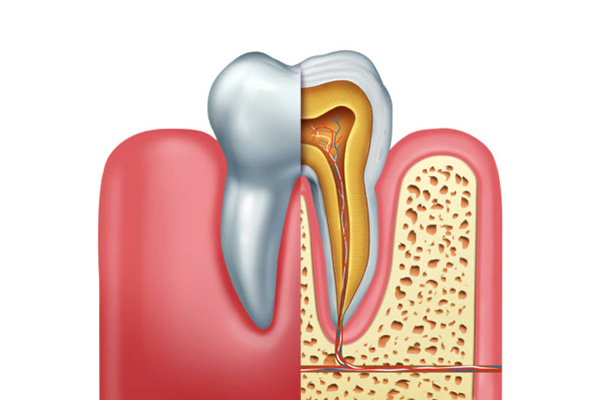We are a dental office who can perform Root Canals
We regularly provide our patients with root canals or endodontic therapy!

What is a root canal?
Root canal treatment, much like a filling, is designed to remove broken or infected tooth structure, clean the tooth, and replace the broken areas with a strong artificial material. When a patient undergoes a root canal the pulp or nerve of the tooth is removed, and the inside of the tooth is cleaned and disinfected to promote healing.
Does a root canal hurt?
You have probably heard many jokes or phrases all similarly deeming a root canal as a terrible procedure that is about as fun as paying taxes. Modern dental technologies and anesthesia have greatly reduced the length of time needed for a root canal as well as the discomforts that have loomed around this procedure in the past.
Do root canals really work?
Many times, a root canal is needed for a large cavity, or badly broken tooth and is the only option for a patient to keep his or her tooth. Root canal therapy is a highly successful procedure that Dr. Santora regularly completes for his patients. In the United States millions of teeth are treated with this therapy every year to prolong the life of a tooth and ease discomfort.
How do I know if I need a root canal?
Only a licensed dentist can prescribe a root canal. Not all types of dental discomfort can be eliminated with a root canal. Many times, root canals are prescribed for teeth that:
- Are causing extensive pain especially while eating / eating or drinking hot and cold foods
- Broken teeth that have enough tooth structure remaining for a restoration
- Abscessed teeth
- Teeth with deep decay / Large cavities

